Turkey’s deepening ties with China are worth paying attention to regardless of the academic reasoning used to justify them. But I thought Foreign Minister Ahmet Davutoglu’s formulation was worth passing on. Referring to Francis Fukuyama’s famous “end of history” as a framework for understanding the end of the Cold War, Davutoglu instead referred to the Cold War and the colonial period that preceded it as historical anomalies, with Turkey’s foreign policy orientation now reflecting the ways in which history is undergoing a “normalization.” I’ve seen this same anomaly framework applied by French Gen. Vincent Desportes to Cold War approaches to […]
Global Archive
Free Newsletter
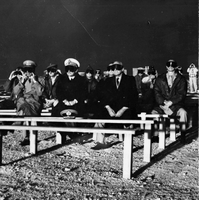
NATO is slated to adopt a new Strategic Concept in November, a document that will serve as a guide for the alliance in what might be called the “post-post Cold War” world. NATO does not revisit its basic guidance often — the last Strategic Concept was approved in 1999. So it is important to craft an enduring statement, as it will likely stand for the next decade. With global support for nuclear arms control and disarmament gathering momentum, it might seem like an appropriate moment for NATO to fundamentally rethink its approach to the role that nuclear weapons play in […]
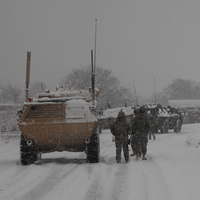
The North Atlantic Treaty Organization (NATO) has been in trouble for much of its 60-year existence. Indeed, since the earliest days of the alliance, Americans have complained about burden sharing and important policymakers have issued dire predictions about the organization’s imminent demise. More recently, few thought NATO would survive the collapse of the Soviet Union, which it was created to contain. Yet, two decades later, the alliance is bigger than ever and engaged in the most significant military conflict in its history. Still, many continue to believe that NATO is outmoded. Europe is largely without threat, they say, and the […]
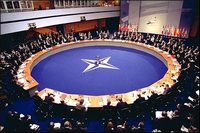
NATO has undergone many changes since its inception in 1949, but its commitment to collective defense has remained intact. During the Cold War, the strong wording of the North Atlantic Treaty’s Article 5, which states that “an armed attack against one . . . shall be considered an attack against them all,” helped deter a confrontation between East and West in Europe. Despite a sea change in NATO’s strategic context, membership, activities and functions, Article 5 has retained an almost mythical quality, enshrining the alliance’s fundamental pledge: e pluribus unum. Thus, despite the intense deliberation on NATO’s future surrounding the […]
The U.K. defense review is now available (.pdf), and to make a long story short, London — with a great deal of help from Washington — broke its military and is now looking at about a decade of shore leave. There are some parallels with France’s Defense White Paper from two years ago, with the major differences being that the French review took place before the pain of the financial crisis took hold, and without needing to absorb the toll of the Iraq War. But this is clearly a cautionary tale. The U.K. cuts now bring the British military’s force-projection […]
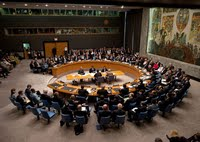
Since the financial crisis broke in 2008, the United Nations Security Council has looked like a poor relation to the newly empowered Group of Twenty (G-20). While world leaders tackled the crisis at biannual G-20 summits, ambassadors in New York got on with the daily grind of reviewing peace operations and routinely condemning far-flung atrocities. The council has occasionally been in the limelight, not least during this summer’s tortuous negotiations over new sanctions on Iran. But a top-level meeting on the council’s role convened by Turkey this September was an illustrative bore, producing a statement calling for a “continuous process […]
The EU makes for an easy target these days when it comes to being considered a strategic actor in global affairs. Many analysts, myself included, have a tendency to explain that by pointing to the union’s lack of security bona fides. But there’s more to it than just the question of how many divisions Europe has, to paraphrase Stalin, or of who to call when you want to call Europe, to quote Kissinger. EU Council President Herman Van Rompuy himself put it best when he observed, only half-jokingly, that the EU has plenty of strategic partnerships — now all it […]
I’m presently putting together an upcoming feature issue on culture and international relations, of which one article will focus on culture as an instrument, and object, of national power — essentially a discussion of certain elements of soft power. So this article in Der Spiegel about how 1980s-era nightclubs catering to U.S. military personnel stationed in West Berlin and elsewhere in West Germany impacted West German culture — in this case, popular music — leaped out at me. It echoes an article I read several years ago about the way in which American GIs made a real cultural impact in […]
U.S. Secretary of State James Steinberg spoke about U.S. policy toward Asia on Oct. 13 at the Carnegie Endowment for International Peace in Washington. Steinberg said U.S. policy toward Asia consists of three dimensions: strengthening and revitalizing traditional alliances; building new relationships with emerging regional powers; and strengthening multilateral and regional cooperation. His speech focused on the last of those three dimensions.
Judy Dempsey offers a typically insightful piece on the challenges facing the EU at the U.N. these days. Ironically, Dempsey pivots off of Germany’s election as a non-permanent member of the council, whereas the real news of this year’s batch of non-permanent members is the presence of India and South Africa. With Brazil already there from last year, that means the council will now include all the member states of IBSA and BRIC, with Turkey thrown in for good measure. We already got a taste this spring of what an alternative emerging powers line at the UNSC could look like […]
Just after posting this item on the implications of this year’s UNSC configuration, I read Michel Real’s contribution to the IFRI yearbook, “La Fin du Monde Unique.” Real’s article examines the way in which Russia and China have used the Shanghai Cooperation Organization to arrive at a modus vivendi in Central Asia, and what leaped out at me was his reference to the SCO as an “instrument of mutual neutralization.” That’s what I was driving at with the previous post, when I referred to both the absence of a unifying South-South agenda, and the possibility that a reactive anti-Westernism might […]

Deputy Secretary of Defense William Lynn recently caused a stir in official Washington by publicly confirming that the Pentagon had suffered a massive computer breach in 2008. A foreign intelligence service successfully slipped an infected flash drive into a Central Command computer. The drive contained software that surreptitiously spread through both classified and unclassified government networks, establishing a “digital beachhead, from which data could be transferred to servers under foreign control.” According to Lynn, “it was a network administrator’s worst fear.” In addition to confirming the breach, Lynn previewed the Defense Department’s cyber strategy, expected to be finalized by the […]
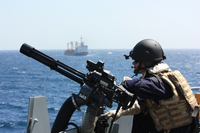
A multinational flotilla of warships has been assembled off the coast of Somalia to do what warships have done for as long as navies have existed: fight pirates. However, the combined efforts of France, Britain, Russia, China, India, the United States, and others have not sufficed to prevent the pirates from targeting ships across the breadth of the Indian Ocean. In much the same way that poorly equipped insurgents are resisting U.S. military efforts in Afghanistan, impoverished Somalis continue to frustrate the great naval powers. Indeed, counterpiracy and counterinsurgency share a common frailty: Both lack good metrics for evaluating success, […]

After having cooperated to an unprecedented degree — on stimulus spending and new bank rules, for instance — to avoid a global meltdown these past two years, the world’s major economies now appear ready to turn on one another with truly self-destructive vengeance. Poorly informed Americans are increasingly convinced that free trade pacts — and not our uniquely high corporate tax rates — are responsible for sending jobs overseas, and they want to see China punished with tariffs on its imports for its undervalued currency. With China’s neighbors intervening heavily to keep their own currencies from rising too high in […]
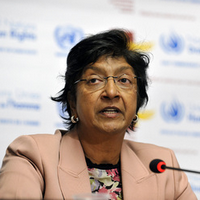
Some of the most distressing aspects of human behavior have endured stubbornly throughout history. To name just one example, human beings continue to inflict unspeakable horrors on other human beings in the course of combat. It is, indeed, a well-established fact that war is hell. But there is one feature of warfare, well-documented and generally accepted as unavoidable since biblical times, that is now coming under increasing scrutiny and facing a well-organized pushback: the use of rape as a weapon of war. As David Axe just reported for WPR from Congo, a growing number of organizations are now focusing their […]

Recent rumors that China had effectively banned rare metal exports to Japan over a thorny territorial dispute have thrust the issue of rare earth elements to the fore. With demand rising and Beijing continuing to tighten its stranglehold over the dwindling supply of rare earths, other countries are now scrambling to secure their own access to the key strategic resource. The 17 varieties of rare earth elements, which are scattered across the Earth’s crust, are essential components in important technology products ranging from televisions and cell phones, to precision-guided missiles and hybrid cars. Approximately 130,000 tons of rare earths are […]
